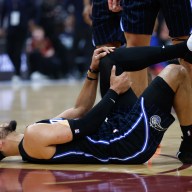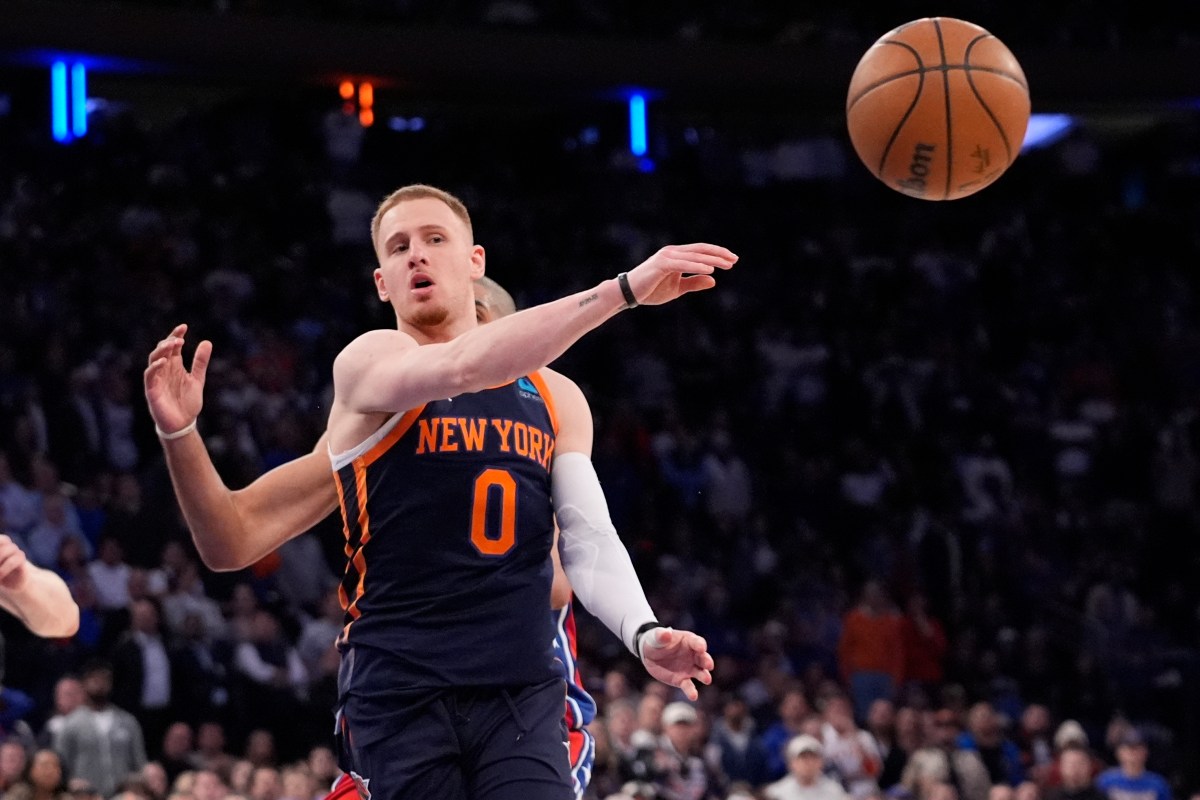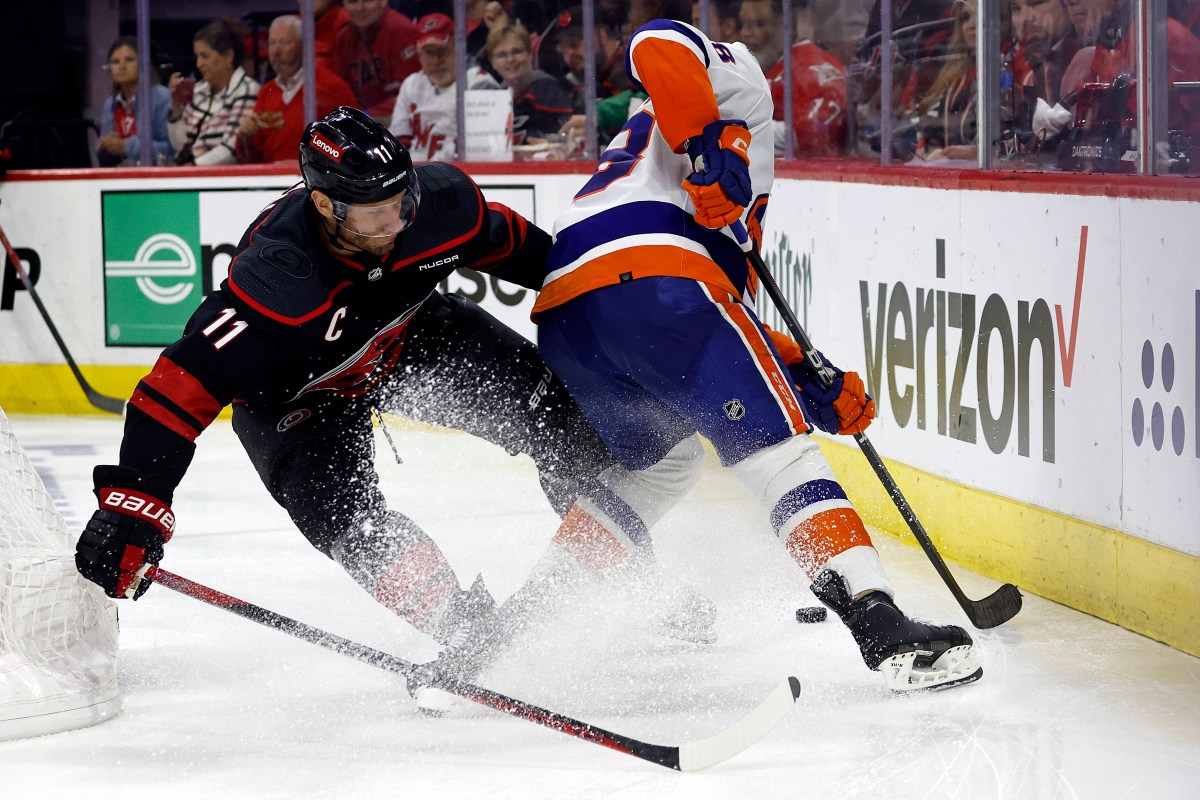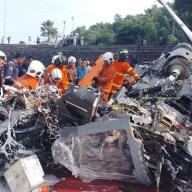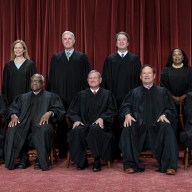It’s been nine days since the July 20th Aurora, Colorado shooting — a massacre that claimed a 13th victim over the weekend as one of the critically injured survivors miscarried — and many Americans may be demanding: Can we talk about gun control now?
Don’t hold your breath. Both major presidential candidates and Congressional lawmakers remain largely silent on the issue, and any legislation before November’s elections appears highly unlikely.
“There’s very little perceived benefit for either of them,” David Birdsell, dean of Baruch College’s School of Public Affairs, said in reference to President Barack Obama and his rival Mitt Romney.
“In Obama’s case there are three letters that explain it: NRA,” Birdsell added. “That lobby has been extremely effective in the marketplace of popular opinion.”
And in Romney’s case, he is trying to walk a fine line between Democratically leaning undecided voters and the conservative base, according to Birdsell.
Obama weighed in somewhat on Wednesday, telling a New Orleans audience that “AK-47s belong in the hands of soldiers, not in the hands of criminals.”
“I believe the majority of gun owners would agree that we should do everything possible to prevent criminals and fugitives from purchasing weapons; that we should check someone’s criminal record before they can check out a gun seller; that a mentally unbalanced individual should not be able to get his hands on a gun so easily,” Obama said.
“These steps shouldn’t be controversial,” he added. “They should be common sense.”
Critics point out, however, that he by and large failed to support similar actions during his first term in office, despite 2008 campaign promises to be strict on gun control.
Romney, meanwhile, once claimed during a 2002 Massachusetts gubernatorial debate that he supported the state’s tough gun laws.
“I believe they protect us and provide for our safety,” Romney said at the time. Two years later, he signed a state assault weapons ban.
He has taken a different stance more recently, saying in 2009 that “no constitutional protection is more often ignored, distorted or disdained than the individual right to keep and bear arms.”
On his campaign website, Romney declared that he would enforce the gun laws already on the books, but that he does not support adding more laws and regulations.
The NRA’s influence in politics
The National Rifle Association, the nation’s most influential gun rights advocacy group, spent almost $3 million on lobbying in 2011, according to the nonpartisan Center for Responsive Politics.
The NRA has also handed out around $577,000 in political contributions so far during the 2012 election cycle.
Rep. Steve Fincher (R-Tenn.), Rep. Rick Berg (R-N.D.) and Rep. Eric Cantor (R-Va.) have been the three biggest beneficiaries, collecting $9,900, $7,450 and $7,450, respectively.
Mitt Romney, for his part, has gotten $5,000 from the NRA. Barack Obama has not received any NRA money.
Bloomberg stands out as lone voice in gun control debate
In contrast to the two presidential candidates, Mayor Michael Bloomberg has shown clearly where he stands on gun control during a recent series of press conferences and TV news shows.
“There are so many murders with guns every day – it’s just got to stop,” Bloomberg said in the wake of the Colorado killings.
Back in 2006, he and Boston Mayor Thomas Menino formed “Mayors Against Illegal Guns,” a coalition of over 600 mayors that works to “stop criminals from getting guns while also protecting the rights of citizens to freely own them.”
He also backed state legislation that increased the mandatory minimum sentence for illegal possession of a loaded handgun.
There are an estimated 57,000 New York City residents with registered gun permits, along with nearly 8,000 members of the local National Rifle Association, according to Crain’s.
Is gun control the right thing?
Unlike Bloomberg, many gun rights advocates believe stricter gun control laws would actually increase crime.
Erich Pratt, a spokesman for Gun Owners of America, told Metro that the worst massacres generally occur in gun-free zones, such as the site of the Aurora, Colo., movie massacre.
“Here again we have a gun-free zone, which has resulted in innocent victims not being able to protect themselves,” Pratt said.
At an Aurora, Colo., church, on the other hand, a heat-packing congregant killed a gunman this April before more bloodshed could be carried out, according to Pratt.



